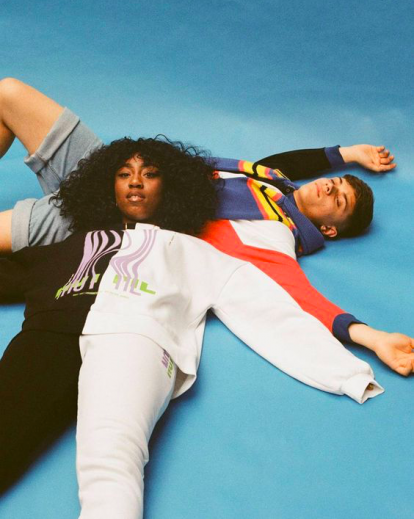

Gen Z: the oldest are graduating, entering the work force and even becoming parents, whilst the youngest are coming to their tenth birthdays. Born roughly between 1995 and 2009, they are often seen as (and even judged for) lacking intimacy and being tethered to technology.
Gen Z are not a single entity, but they do clearly share common concerns around fairness, diversity, and sustainability that see them frequently labelled as ‘woke’. With the world in flux, one could go as far as to say that as a generation, the wellbeing of the planet is quite literally in their hands. They are bestowed with a responsibility to take care of resources that previous generations took for granted. They inherited a precarious natural environment and generations of bad decisions, not to mention the trials and tribulations of social media, mental health, rising populism… we could go on.
So, whereas previous generations consumed and innovated almost for pleasure, Gen Z are taking a more active role in ensuring that their decisions are considered, they make conscious purchases and want their values heard.
Like generations before them, Gen Z are bringing new cultural ideas and behaviours to the fore. With this wokeness comes a vigilance against brands that talk the talk without walking the walk. True, long-term resonance with this generation means a genuine reimagining of how brands work – from supply chain systems to authentic communication of openness and inclusion.
Now more than ever, brands are moving to understand and market to this newest and enigmatic demographic. This presents a HUGE opportunity for brands to provide experiences and services that ensure consumers can feel good about their actions whilst actively contributing to the renewal, growth and wellbeing of their societies and of themselves.
With that in mind…
Gen Z are connecting with brands that throw away the rule book and find new models in a bid to reframe traditional capitalist agendas.

Start-up Refeed America in name alone suggests a rekindling of a lost America – an alternate reality to Trump’s Make America Great Again that envisions more equitable food distribution models. It uses geo-technology to connect surplus food to those in need, thereby reducing food waste.

Target celebrates its consumers with an incubator program that looks to support “a business that is better for people or the planet”, and inspiringly recognizes the absolute imperative role of corporations and previous generations to give way and fund young minds with fresh perspectives.
Gen Z are utilising new educational tools to access learning opportunities that aren’t overshadowed by inequality, in a world where traditional schools and universities are becoming fraught cultural territories.

LRNG privileges ‘experiences’ and encourages teens to pursue their interests by connecting them to peers and mentors who help them evolve their skillsets for the “modern economy” with local and national career opportunities.

Think Global School says it all in its name with a borderless curriculum across twelve countries. These less traditional routes help normalise home-schooling and redefine education as a living, breathing thing – more preparatory and pliable than a fixed institution that cannot change quickly enough to meet the future.
Gen Z are increasingly showing us how we can harness the positive attributes of social media as progressive medium for creativity, storytelling, political/social/environmental change.

#HalftheStory directly counteracts the perfectionism of life online by encouraging its global community to share that “part of yourself that exists outside of your social media story”. It offers an antidote to Instagram’s harmonious colour palettes and pristine curation and frames social media as a tool for self-reflection and honesty.

Digital natives Gen Z are using features such as Instagram’s ‘Close Friends’ lists to create inner circles that allow for greater freedom of self-expression and a sense of safety in online spaces. This more private and supportive environment is especially important for teens who are non-binary or are tackling mental health issues. Through embracing customised, more intimate audiences, Gen Z are able to exclude potential trolls, facilitate positive reinforcement, and make mainstream platforms their own.
In an uncertain world, Gen Z are more comfortable than previous generations in not aspiring to traditional ‘markers of success’. Where once ownership was all, now sharing and giving take just as much prominence. Brands are tapping into this in various different ways:

Instead of the previously defining moment of owning your first car, companies like Lyft offer car subscription models that flip the milestone of owning a car and highlight an acceptance and celebration of fluid accessibility and cooperative ownership.

Even the celebratory birthday present is being reframed as an opportunity to give (collectively) rather than receive through Facebook’s Charitable Giving Tool that prompts users to create fundraisers two weeks before their birthday.
Having grown up with the world’s knowledge at their fingertips, Gen Z are comfortable with finding their own way when it comes to creative development and self-expression, and brands are tapping into this in various ways.

American Eagle’s latest campaign featured the retailer’s Gen Z shoppers who also shot and styled the campaign themselves. The brand handed over its creative direction to the people who know and love the brand most and able to tell its story best.

Photo-editing app VCSO profiles a variety of Gen Z creatives in their recent campaign, highlighting the unique approaches of the artists who make what feels right to them rather than others, working fluidly across multiple disciplines, and discovering and using their own processes.
Get in touch if you’d like to chat about how you can better connect with Gen Z!
– Hannah Hoel
Image credit: ASOS, Collusion